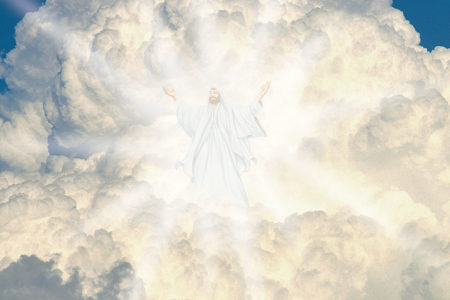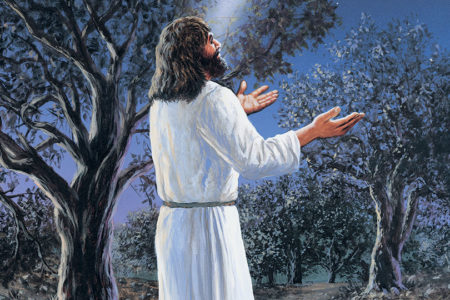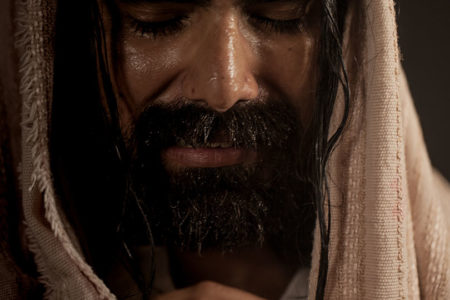Jesus Christ and the Future Kingdom of God Part Eleven
Since Israel rejected Jesus Christ and His offer of God’s theocratic Kingdom, the theocratic Kingdom was not established with the nation of Israel that existed at the time of Christ’s First Coming. Instead, its establishment has been postponed until the Jewish nation of His Second Coming will believe. This article examines two biblical evidences of that postponement.
Jesus Christ and the Throne of David
Biblical Declarations. Isaiah prophesied concerning the Messiah,
Of the increase of his government and peace there shall be no end, upon the throne of David, and upon his kingdom, to order it, and to establish it with justice and with righteousness from henceforth even forever (Isa. 9:7).
The angel Gabriel announced that God will give Jesus Christ the throne of His ancestor David, that Jesus will reign over the house of Jacob forever, and that Jesus’ Kingdom will never end (Lk. 1:31–33).
The apostle Peter declared that God had sworn with an oath to David “that of the fruit of his loins, according to the flesh, he would raise up Christ to sit on his throne” (Acts 2:30).
These biblical declarations indicate that Christ’s Kingdom (the future theocratic Kingdom) will be present and functioning when He sits on the throne of David. They thereby imply that the future theocratic Kingdom will be established when Jesus Christ takes His seat on David’s throne. In light of this implication, to determine the time of the theocratic Kingdom’s establishment, we must discern the time of Christ’s taking His seat on David’s throne.
Did Christ take His seat on David’s throne when He ascended to heaven after His resurrection and sat on the right hand of God and God’s throne (Mk. 16:19; Heb. 12:2)? If so, then David’s throne is to be equated with God’s throne in heaven; and there is some sense in which the theocratic Kingdom was established at that time.
Or will Christ take His seat on David’s throne in conjunction with His Second Coming to earth after the Great Tribulation (Mt. 24:29–31)? If He will do so at that future time, then David’s throne is separate and distinct from God’s throne in heaven, and no part of the theocratic Kingdom has been or will be established until Christ’s Second Coming.
To determine which of these positions is correct, we must examine three biblical items.
The Description of the Throne in Heaven. Three facts should be noted concerning the throne in heaven. First, the Scriptures consistently describe it as God’s throne, indicating that it belongs to God the Father (Lam. 5:19; Mt. 5:34; 23:22; Acts 7:49; Heb. 8:1; 12:2; Rev. 7:15; 12:5; 14:5). Second, the Bible signifies that God’s throne is located in the heavenly realm (Ps. 11:4; 103:19; Heb. 8:1). In fact, the Scriptures declare that heaven is God’s throne (Isa. 66:1; Mt. 5:34; 23:22; Acts 7:49). Third, the Bible never calls God’s throne in heaven “the throne of David.”
The Distinctiveness of the Throne of David. Several factors indicate that David’s throne is separate and distinct from God’s throne in heaven.
First, several descendants of David have sat on his throne, but only one of his descendants ever sits on the right hand of God’s throne in heaven. That descendant is Jesus Christ (Ps. 110:1; Heb. 8:1; 12:2).
Second, David’s throne was not established before his lifetime (2 Sam. 7:16–17). By contrast, since God has always ruled over His creation, His throne in heaven was established long before David’s throne (Ps. 93:1–2).
Third, since God’s throne in heaven was established long before David’s throne and since God’s throne was established forever (Lam. 5:19), then it was not necessary for God to promise to establish David’s throne forever (2 Sam. 7:16) if they are the same throne.
Fourth, David’s throne was on the earth, not in heaven. David and his descendants who sat on his throne exercised an earthly, ruling authority. They never exercised ruling authority in or from heaven. By contrast, as noted earlier, the Bible indicates that God’s throne is in heaven.
Fifth, the Bible’s consistent description of David’s throne indicates that it belongs to David. When God talked to David about his throne, God referred to it as “thy throne” (2 Sam. 7:16; Ps. 89:4; 132:12). When God mentioned David’s throne to others, He referred to it as “his throne” (Ps. 89:29, 36; Jer. 33:21), “David’s throne” (Jer. 13:13), and “the throne of David” (Jer. 17:25; 22:2, 4, 30). By contrast, the Scriptures’ consistent description of the throne in heaven indicates that it belongs to God the Father.
The Distinctiveness of Christ’s Throne. Several things indicate that when the future theocratic Kingdom is established and Jesus rules over it, the throne on which He sits is separate and distinct from God’s throne in heaven.
First, several decades after Jesus Christ ascended to heaven, He made the following statement in Revelation 3:21: “To him that overcometh will I grant to sit with me in my throne, even as I also overcame, and am set down with my Father in his throne.” Christ drew a clear distinction between His throne (where He and His overcomers will sit in the future) and the throne of God in heaven (where He presently sits with His Father).
Second, God the Father’s declaration to His Son, Jesus Christ, “Thy throne, O God, is forever and ever” (Ps. 45:6; Heb. 1:8) indicates that God recognizes a throne that belongs to Christ as separate and distinct from the throne that belongs to God in heaven.
These distinctions by Christ and God militate against Christ’s throne and the throne of God in heaven being the same throne. Since it is the throne of David that God promised to give to Jesus Christ (Lk. 1:31–32), then Christ’s throne must be David’s throne. Since Christ’s throne must be David’s throne and since Christ’s throne is separate and distinct from God’s throne in heaven, then David’s throne must be separate and distinct from God’s throne in heaven.
Conclusion. In light of the description of the throne in heaven, the distinctiveness of the throne of David, and the distinctiveness of Christ’s throne, the following conclusions can be drawn: First, the throne of David is not equatable with the throne of God in heaven. Second, since the throne of David is not equatable with God’s throne in heaven, when Jesus Christ ascended to heaven after His resurrection He did not take His seat on David’s throne. Instead, He sat down on the right hand of God’s throne. Third, the fact that Christ has continued to sit on the right hand of God’s throne in heaven to this present time indicates that He has not yet taken His seat on David’s throne. Fourth, since the future theocratic Kingdom will be established when Jesus Christ takes His seat on David’s throne and, since He has not yet done so, then no part of the theocratic Kingdom has been established yet.
Jesus Christ and the Sealed Scroll of Revelation 5
In an earlier article concerning Jesus Christ and the future Kingdom of God, we examined the relationship of Christ to the sealed scroll of Revelation 5. There we noted the following truths: As a result of the first Adam joining Satan’s revolt against God, mankind temporarily lost its God-given tenant possession of the earth. In addition, the original theocratic Kingdom of God was lost from the earth. Satan usurped the rule of the world system away from God and has continued to dominate it ever since. To fulfill His purpose for history, God must crush Satan by ridding the earth of him and his world-system rule; and then He must restore His theocratic-Kingdom rule to this earth before earth’s history ends.
God revealed that Jesus Christ, as the last Adam and mankind’s Kinsman-Redeemer, will do the following three things: (1) redeem mankind’s lost tenant possession of the earth, (2) crush Satan, and (3) establish the future theocratic Kingdom (when tenant possession will be restored to mankind).
Through the shedding of His blood on the cross, Christ paid the price to redeem mankind’s inheritance of the earth. At that time, a scroll deed of purchase for that inheritance was made. The scroll was legal evidence that Christ paid the redemption price and, therefore, had the right to do two things—rid the earth of Satan and his world-system rule and establish the future theocratic Kingdom.
The scroll was sealed with seven seals and placed in God’s right hand in heaven (Rev. 5:1, 7). This sealing and placement were to make the contents of the scroll secure from tampering. This security was necessary because Christ neither rid the earth of Satan and his world-system rule nor established the theocratic Kingdom immediately after He had paid the redemption price at the cross. Instead, He ascended from the earth to heaven (Acts 1:9–11); and there He has remained at the right hand of God and God’s throne ever since.
It was imperative that the contents of the scroll deed of purchase be kept secure from tampering during Christ’s long absence from the earth; so when He returns to the earth, it can provide legal evidence of His right to rid the earth of Satan and his rule and establish the theocratic Kingdom. Christ will have taken the scroll from God’s hand and broken its seven seals by the time of His future coming, so He can read its contents publicly at that time as evidence of His right (Rev. 5:1—6:17; 8:1). Not until then will Christ rid the earth of Satan and his rule and establish the future theocratic Kingdom.
This relationship of Jesus Christ to the sealed scroll of Revelation 5 indicates that (1) Christ did not establish the theocratic Kingdom of God after He ascended to heaven and sat at the right hand of God and God’s throne, and (2) He will not establish it until His Second Coming to earth.
Conclusion
The relationships of Jesus Christ to the throne of David and the sealed scroll of Revelation 5 indicate that the theocratic Kingdom was not established with the nation of Israel that existed at Christ’s First Coming. Instead, its establishment has been postponed until His Second Coming. The next article will examine more evidences of that postponement.






